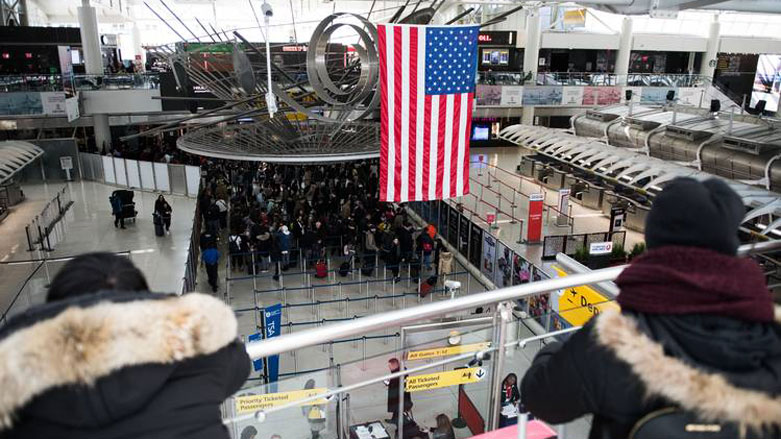Iraqi deported by ICE in violation of a judge's order returns again to the US

ERBIL (Kurdistan 24) – In an extremely unlikely turn of events, an Iraqi man who had been missing for weeks after being involuntarily deported to Baghdad from the United States in August has been allowed to return home to the country where he has lived for nearly a quarter of a century.
Kurdistan 24 spoke to Muneer Subaihani on Friday, after his arrival in his adopted home of Nashvile, Tennessee. "I can't believe I'm back," he said. "I didn't think I'd see the United States again."
It is almost unheard of that someone deported from the US would ever set foot back in the country. What made Subaihani's case different is that he was returned to Iraq by US Immigration and Customs Enforcement (ICE) in direct violation of a district court judge's order.
Lawyers from the American Civil Liberties Union (ACLU) petitioned the judge, Mark A. Goldsmith, who ordered that ICE buy Subaihani's return ticket and facilitate his re-entry into the country.
Subaihani, a 52-year-old man who came to the US in 1994, was eligible to be deported solely because of two low-level criminal convictions for marijuana possession, both over a decade ago.
He told Kurdistan 24 that he'd been having great difficulty in Iraq for months because he was sent back without any valid Iraqi ID and that he stayed at home so he would not be arrested at one of Baghdad's hundreds of security checkpoints because he could not prove who he was. Repeated attempts to get new identification, even with the help of a lawyer, were unsuccessful.
Officials at the US Embassy in Baghdad met with Subaihani and issued him a US identification card that allowed him to travel internationally. They then coordinated arrangements and permissions with ICE, the Iraqi government, and an airline company to make sure he returned safely to New York's JFK International Airport on Tuesday.
News of his initial deportation, and that his whereabouts were not known, became public in late August. This came shortly after Judge Goldsmith censured ICE after the ACLU presented evidence that immigration agents had been threatening Iraqi detainees at a Michigan jail and coercing them to signing paperwork stating that they agreed to be deported.
Speaking to Kurdistan 24 at the time, Miriam Aukerman, senior staff attorney for the ACLU of Michigan said that the ICE had no idea where Subaihani was, or even if he'd arrived in Baghdad.
“Iraq has long required deportees to sign a form stating that they are willing to return to Iraq, and will not accept their repatriation involuntarily,” she explained, in what would appear to be a likely motivation for ICE officials to pressure Iraqis to sign the return paperwork.
On Jan. 12, Iraq's new Minister of Displacement and Migration Nawfal Moussa said that his ministry would continue to reject the forced repatriation of Iraqis abroad who do not wish to return, as his predecessor had and as has been the national policy for years. The issue has long been a sensitive one in Iraq, where displacement is commonplace.
In the summer of 2017, ICE rounded up hundreds of Iraqis it planned to deport, largely in Michigan. Some had serious past criminal convictions, some only had visa issues, many of both decades old. ICE announced that as many as 1,400 Iraqis were at authorized to be deported back to Iraq, some of whom came to the US as children and did not speak Arabic.
In November, Judge Goldsmith found that ICE had purposefully misrepresented the Iraqi government's stance on forced repatriation in US federal court and had lied about Iraqi officials' willingness to accept them.
He also found that ICE prosecutors had given the court misleading information about the real reason a plane with multiple Iraqi deportees had not authorized to fly to Iraq. ICE officials had blamed it on an earlier court order of Goldsmith himself when, in fact, the Iraqi government had refused to accept them.
Goldsmith then ordered about 130 Iraqis who had been imprisoned for nearly 18 months awaiting deportation released. They still face individual deportation hearings and the very real possibility that they will be sent back to Iraq.
Subaihani's deportation order is still active as well, and he could still find himself involuntarily boarding a plane for the second time, back to the country he first escaped over twenty years ago.
